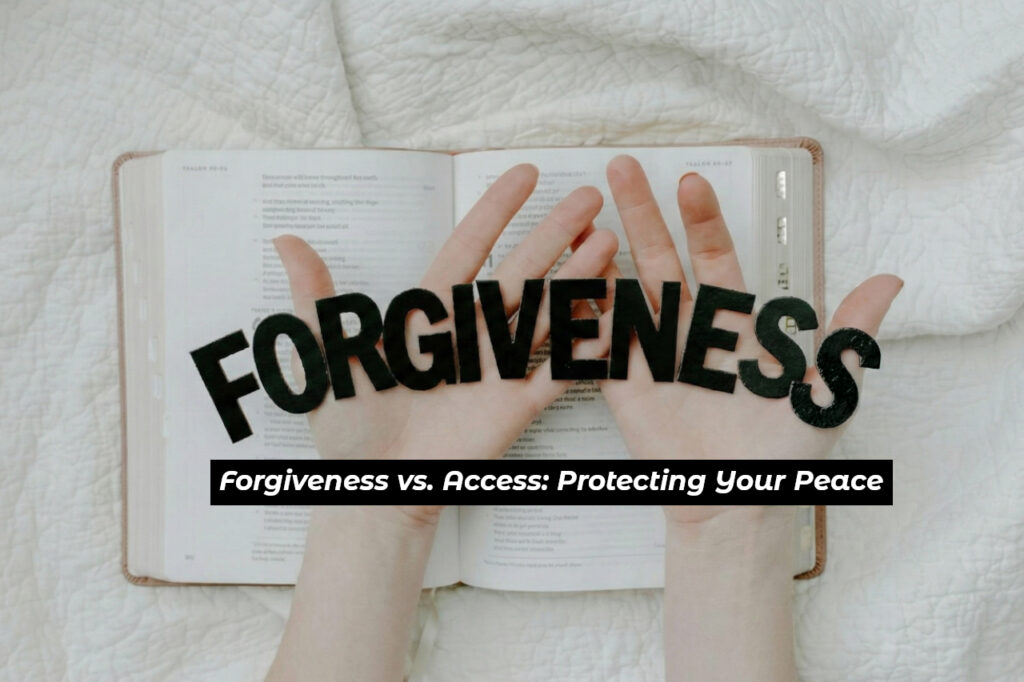A Deep Dive into Compulsive and Stressor-Related Disorders
Did you know that nearly one in four South Africans over the age of 60 experiences significant mental health challenges, including Obsessive-Compulsive and Trauma-Related Disorders? If you or a loved one are navigating the transition into retirement, the emotional and psychological shifts can be overwhelming, making it crucial to understand how these disorders might manifest and affect daily life.
Retirement, often seen as a time for relaxation, can sometimes magnify underlying mental health issues, leaving many feeling isolated or out of control. Building on our previous discussions in “How to Live with and Treat People with Personality Disorders in the Retirement Home Environment.” and “Transform Your Frail Care Room: 10 Essential Tips for Comfort and Well-being,” this post delves deeper into the mental health challenges that retirees face, particularly focusing on the disorders that can disrupt this pivotal stage of life.
In this post, we’ll provide practical insights and strategies to help you or your loved ones manage Obsessive-Compulsive and Trauma-Related Disorders effectively during retirement. You’ll learn about the early warning signs to watch for, the most effective treatment options for older adults, and the essential role that family and caregivers play in supporting mental well-being.
Stay with us as we explore these critical aspects, offering guidance and reassurance to help ensure that retirement is a time of peace and fulfilment, rather than stress and anxiety.

Obsessive-Compulsive and Related Disorders
Tic-Related OCD
Tic-Related Obsessive-Compulsive Disorder (OCD) is a subtype of OCD where individuals experience both obsessive-compulsive behaviours and motor or vocal tics. These tics can range from simple, such as eye blinking or throat clearing, to more complex movements or sounds.
The presence of tics adds a layer of distress, as the individual not only struggles with intrusive thoughts and compulsions but also with involuntary movements or sounds. This subtype often begins in childhood and can persist into adulthood, becoming more pronounced in stressful situations or during significant life changes, such as retirement.
Body Dysmorphic Disorder
Body Dysmorphic Disorder (BDD) is characterised by an obsessive preoccupation with perceived flaws in one’s appearance. These flaws, often minor or non-existent to others, can cause significant distress and impact daily life.
In some cases, this obsession can focus on specific areas of the body, leading to muscle dysmorphia, where an individual becomes fixated on the belief that their body is insufficiently muscular or toned. For retirees, the changes in appearance that come with ageing can exacerbate these concerns, leading to increased anxiety and depression.
This disorder can drive individuals to extreme measures, such as excessive grooming, frequent mirror checking, or seeking unnecessary cosmetic procedures.
Hoarding Disorder
Hoarding Disorder is marked by an overwhelming difficulty in discarding possessions, regardless of their actual value. This behaviour often leads to the excessive accumulation of items, creating cluttered living spaces that can become unsafe.
The emotional attachment to these items, combined with the anxiety of letting them go, can result in significant distress and interfere with daily functioning. For retirees, who may have more time at home and a reduced social network, the tendency to hoard can intensify, as items often serve as emotional crutches or reminders of the past.
Hoarding can also lead to strained relationships with family members, who may struggle to understand the behaviour.
Trichotillomania and Excoriation Disorder
Trichotillomania, or Hair-Pulling Disorder, and Excoriation Disorder, also known as Skin-Picking Disorder, are compulsive behaviours where individuals feel an irresistible urge to pull out their hair or pick at their skin, respectively.
These behaviours are often a response to stress or anxiety and can result in noticeable hair loss, skin damage, and infections. While these disorders typically begin in adolescence, they can persist into retirement, where the lack of structure and increased idle time may exacerbate the compulsions.
These behaviours can cause significant shame and social withdrawal, further isolating individuals who are already vulnerable due to the major life transition of retirement.
Substance/Medication-Induced OCD
Substance/Medication-Induced Obsessive-Compulsive Disorder occurs when OCD symptoms develop as a direct result of substance use or withdrawal from certain medications. This can include substances such as drugs, alcohol, or even prescribed medications that affect the brain’s chemistry. The symptoms mirror those of traditional OCD but are triggered by the substance, complicating the treatment process.
For retirees who may be on various medications or who have a history of substance use, this subtype of OCD can be particularly challenging to manage, as it requires careful coordination between mental health professionals and medical providers to address both the underlying substance issues and the compulsive behaviours.
OCD Due to Another Medical Condition
In some cases, Obsessive-Compulsive Disorder can develop as a result of another medical condition. This form of OCD is often linked to neurological disorders or significant health issues, such as stroke, traumatic brain injury, or infections affecting the brain. The onset of OCD symptoms in these cases is directly related to the medical condition, making it essential to address the underlying health issue alongside the OCD treatment.
For retirees, who may be facing an increasing number of health challenges, this form of OCD can add to the complexity of managing their overall well-being. It underscores the importance of a holistic approach to treatment, considering both physical and mental health.
Other Specified and Unspecified OCD
The categories of Other Specified and Unspecified OCD are used for cases where symptoms do not neatly fit into the typical subtypes of OCD but still cause significant distress or impairment. These categories allow for flexibility in diagnosis, acknowledging that OCD can manifest in a variety of ways that may not conform to traditional definitions.
This is particularly important for retirees, whose symptoms might evolve or present differently due to life changes, health conditions, or the ageing process. By recognising these less common presentations of OCD, mental health professionals can offer more personalised treatment plans that address the unique needs of each individual.
Modern Living Flats

Basic Cottages

Modern Comfort Cottages

Comfortable Frail Care

Trauma- and Stressor-Related Disorders:
Trauma- and stressor-related disorders arise as a response to significant, often life-altering events that threaten an individual’s physical or emotional well-being. These disorders manifest when the mind struggles to process and integrate traumatic experiences, leading to a range of psychological symptoms.
The impact of these events can be profound, affecting thoughts, emotions, and behaviours, and can continue long after the initial event. For retirees, who may face the compounded stress of ageing, health issues, and major life transitions, these disorders can be particularly challenging. Understanding the different forms these disorders can take is essential for providing appropriate support and treatment.
Reactive Attachment Disorder
Reactive Attachment Disorder (RAD) typically develops in children who have experienced severe neglect or abuse, resulting in inhibited and emotionally withdrawn behaviour toward caregivers. Individuals with RAD struggle to form healthy attachments, displaying a lack of interest in seeking comfort or affection.
Though commonly diagnosed in children, the effects of RAD can persist into adulthood, leading to difficulties in forming close relationships. For retirees, particularly those who experienced early trauma, the symptoms of RAD may re-emerge or worsen, especially if they face significant losses or changes, such as the death of a spouse or the transition to a retirement community.
Disinhibited Social Engagement Disorder
Disinhibited Social Engagement Disorder (DSED) is another attachment disorder that arises from early childhood trauma. Unlike RAD, individuals with DSED exhibit overly familiar and socially inappropriate behaviour with strangers. This can include a lack of reticence in approaching unfamiliar adults and an eagerness to form bonds with people they barely know.
While DSED is typically identified in children, its effects can carry over into later life, making retirees vulnerable to exploitation or manipulation due to their overly trusting nature. The disorder highlights the lasting impact of early trauma on social interactions and the importance of ongoing support throughout life.
Post-Traumatic Stress Disorder (PTSD)
Post-Traumatic Stress Disorder (PTSD) is one of the most well-known trauma-related disorders, characterised by symptoms such as flashbacks, nightmares, and severe anxiety following exposure to a traumatic event.
In retirees, PTSD symptoms can often present with a delayed onset, sometimes emerging years after the initial trauma, particularly when the individual has more time to reflect on their past experiences.
This delayed expression can be triggered by significant life changes, such as retirement, which may bring unresolved memories and emotions to the surface. Symptoms can include intrusive thoughts, avoidance of reminders of the trauma, hyperarousal, and negative changes in mood and cognition, severely impacting the quality of life.
Acute Stress Disorder
Acute Stress Disorder (ASD) is an immediate, intense response to a traumatic event, typically occurring within the first month after the incident. Symptoms are similar to those of PTSD, including intrusive memories, dissociation, and severe anxiety.
However, ASD is distinguished by its short-term nature; if symptoms persist beyond a month, the diagnosis may shift to PTSD. For retirees, an unexpected traumatic event—such as an accident, assault, or the sudden loss of a loved one—can trigger ASD.
Prompt recognition and treatment are crucial to prevent the progression of PTSD and to help the individual regain a sense of stability and control.
Adjustment Disorders
Adjustment Disorders occur in response to significant life changes, such as retirement, relocation, or the loss of a loved one. Unlike other trauma-related disorders, the stressor here is not necessarily life-threatening but is significant enough to cause considerable distress and disrupt daily functioning.
Symptoms may include depression, anxiety, or behavioural changes, and they typically arise within three months of the stressor. For retirees, the transition to retirement can be particularly challenging, as it often involves a loss of routine, identity, and social connections.
Adjustment Disorders highlight the need for support and resources to help individuals navigate these life changes and maintain their mental well-being.
Other Specified and Unspecified Trauma-Related Disorders
The categories of Other Specified and Unspecified Trauma-Related Disorders allow for the diagnosis of symptoms that do not fit neatly into the more defined categories of trauma-related disorders. This flexibility in diagnosis is important, as trauma can manifest in a wide variety of ways, and each individual’s response to stressors can be unique.
For retirees, whose experiences and reactions may be influenced by a lifetime of personal history, these categories ensure that their symptoms are recognised and treated, even if they do not align with traditional diagnostic criteria.
This approach underscores the importance of a personalised treatment plan that addresses the specific needs of the individual.
Bible Study Blog
- Bible Message – Week 23. God brings life to dead situations. Pst. Johan Venter
- Bible Message – Week 24. The SHEPHERD of Psalm 23. Pst. Johan Venter
- Bible Message – Week 25. The DAY the MANNA ceased. Pst. Johan Venter
- Bible Message – Week 26. Oil: It is not OVER, because God is not FINISHED. Pst. Johan Venter
Retirement and Obsessive-Compulsive and Related Disorders
Impact on Retired Individuals
Retirement marks a significant shift in an individual’s daily life, often bringing a loss of routine, social interaction, and a sense of purpose. For those with Obsessive-Compulsive and Related Disorders, these changes can exacerbate symptoms, leading to a worsening of compulsions and obsessions.
The absence of a structured day, which work often provides, can leave retirees with an excess of unoccupied time. This increased solitude and lack of external distractions may lead to heightened anxiety and a stronger focus on obsessive thoughts. Furthermore, retirees might struggle to fill their days meaningfully, which can lead to increased rumination and compulsive behaviours as a way to regain control.
Understanding how retirement impacts these disorders is crucial for developing effective coping strategies and maintaining mental health during this life transition.
Importance of Diagnosis and Treatment
Early diagnosis and treatment of Obsessive-Compulsive and Related Disorders in retirees are essential for managing symptoms and improving the quality of life. Left untreated, these disorders can lead to significant impairment, including physical health risks (such as those posed by hoarding) and severe emotional distress.
Treatment options, such as cognitive-behavioural therapy (CBT), medication, or a combination of both, can be highly effective in reducing symptoms.
Additionally, support groups and counselling can provide retirees with the tools and social support they need to cope with these challenges. It’s crucial to address these conditions early, as they may worsen over time, particularly in the absence of daily structure and social interaction that retirement often brings.
Retirement and Trauma- and Stressor-Related Disorders
Impact on Retired Individuals
Retirement is often seen as a time of relaxation and freedom, but for some, it can bring to the surface unresolved trauma and new stressors that significantly impact mental health. Trauma-related disorders, particularly Post-Traumatic Stress Disorder (PTSD) and Adjustment Disorders can become more pronounced during retirement as individuals face the loss of their daily structure, purpose, and social connections.
For those with PTSD, retirement can trigger a resurgence of symptoms, especially if they have more time to reflect on past experiences. This might include flashbacks, nightmares, and heightened anxiety, all of which can interfere with the ability to enjoy this new phase of life.
Adjustment Disorders are also common during retirement, as the transition from a busy working life to a more relaxed lifestyle can be challenging. This disorder involves emotional or behavioural symptoms that develop in response to a significant life change.
The loss of a job, even if voluntary, can create a sense of identity loss and lead to feelings of depression, anxiety, or difficulty adjusting to the new routine. For some retirees, the combination of these disorders can lead to isolation, a loss of interest in activities, and a decline in overall well-being.
Understanding and Managing These Disorders
Recognising the symptoms of trauma- and stressor-related disorders is crucial for retirees to seek appropriate treatment and improve their quality of life. It’s important to understand that experiencing these disorders during retirement is not uncommon, and help is available. Symptoms like persistent sadness, anxiety, difficulty sleeping, irritability, or withdrawal from social activities should not be dismissed as simply part of getting older.
Managing these disorders often requires a multifaceted approach. Cognitive-behavioural therapy (CBT) has proven effective for many individuals, helping them reframe negative thoughts and develop coping strategies.
For those with PTSD, therapies like Eye Movement Desensitisation and Reprocessing (EMDR) can be particularly beneficial in processing traumatic memories. Additionally, medications such as antidepressants may be prescribed to help manage symptoms.
Retirees should also consider building a support network, whether through friends, family, or support groups, to provide emotional support and reduce feelings of isolation. Engaging in regular physical activity, maintaining a healthy diet, and establishing a new routine can also play a significant role in managing these disorders.
Early intervention is key to preventing these conditions from worsening and ensuring that retirement can be a time of fulfilment rather than distress.

Supporting Residents with OCD and Trauma-Related Disorders
Caregiver Strategies
For Obsessive-Compulsive Disorder (OCD):
Caring for residents with Obsessive-Compulsive Disorder (OCD) requires a thoughtful and compassionate approach. Understanding that OCD is not simply a quirk or a personality trait, but a serious mental health condition is crucial for effective care.
One of the key strategies is to maintain a calm and stable environment, as sudden changes or chaotic surroundings can exacerbate OCD symptoms. Caregivers should be patient and avoid criticism, recognising that compulsive behaviours are a way for individuals to manage their anxiety.
Setting clear boundaries is important to prevent compulsions from dominating the resident’s life. This can be done gently and with understanding, helping the individual to gradually reduce the frequency of their compulsions without causing additional stress.
Encouraging positive coping mechanisms, such as mindfulness, relaxation techniques, or engaging in hobbies, can also help residents manage their symptoms more effectively. Supportive encouragement rather than forceful correction is essential in helping individuals feel in control and understood.
For Trauma-Related Disorders (e.g., PTSD):
Caring for residents with trauma-related disorders, such as Post-Traumatic Stress Disorder (PTSD), requires an awareness of potential triggers and an emphasis on emotional support. Triggers, such as certain sounds, smells, or situations, can cause intense distress and flashbacks.
Being mindful of these triggers and creating a safe, predictable environment is crucial. Encouraging a routine can provide a sense of security and normalcy, helping residents manage their symptoms.
Social interaction should be promoted but with sensitivity to the resident’s comfort levels. Forcing interaction or pushing individuals to confront their trauma too quickly can be counterproductive. Instead, gentle encouragement and providing opportunities for social engagement at their own pace can help residents feel more connected and less isolated.
Offering emotional support, validating their feelings, and providing reassurance can make a significant difference in their well-being.
General Advice
Communication:
Effective communication is the cornerstone of supporting residents with OCD and trauma-related disorders. Open, calm, and reassuring communication helps build trust and allows residents to feel understood and supported. It’s important to listen actively and be responsive to their needs without making them feel rushed or pressured. Reassuring residents that their feelings and experiences are valid can help reduce anxiety and foster a sense of security.
Education and Training:
Caregivers should be well-informed about OCD and trauma-related disorders to provide the best care possible. Education and ongoing training are essential for understanding the complexities of these conditions and staying updated on the latest treatment approaches.
Knowledge empowers caregivers to respond effectively to challenging situations and to offer the appropriate support that can make a significant difference in the lives of those they care for.
Collaboration with Mental Health Professionals:
Working closely with mental health professionals is vital in managing OCD and trauma-related disorders. Collaboration allows for a comprehensive approach to care, where caregivers can implement strategies and interventions recommended by professionals.
Regular communication with therapists, psychologists, or psychiatrists ensures that the care provided is aligned with the resident’s treatment plan, leading to more effective outcomes.
Self-Care for Caregivers:
Caregivers must not overlook their own well-being while providing care for others. Supporting residents with OCD and trauma-related disorders can be emotionally demanding, and caregivers need to practice self-care. This might include regular breaks, seeking support from peers or supervisors, and engaging in activities that help them relax and recharge.
Maintaining their mental and physical health ensures that caregivers can continue to provide high-quality care without becoming overwhelmed or burnt out.
Recognising and Managing These Disorders in Retirees
Early Warning Signs
Identifying early warning signs of compulsive and stressor-related disorders in retirees is crucial for timely intervention and treatment. These disorders can manifest subtly, especially in individuals transitioning to retirement, where changes in routine and social isolation may exacerbate underlying conditions.
Common signs to watch for include increased anxiety, obsessive thoughts, compulsive behaviours, or significant mood changes. Retirees may also exhibit withdrawal from social activities, a heightened focus on specific routines or rituals, or express irrational fears related to their health or environment.
Recognising these symptoms early can help individuals or their loved ones seek appropriate help before the condition worsens, leading to better outcomes and quality of life.
Treatment Options
Once symptoms of compulsive and stressor-related disorders are identified, it’s important to explore effective treatment options tailored to the needs of retirees. Cognitive Behavioral Therapy (CBT) is highly effective in treating disorders like Obsessive-Compulsive Disorder (OCD) and PTSD, helping individuals reframe negative thought patterns and develop healthier coping mechanisms.
For those struggling with OCD, Exposure and Response Prevention (ERP) therapy, a form of CBT, is particularly beneficial in reducing compulsive behaviours by gradually exposing individuals to their fears without allowing them to perform their usual rituals.
In the context of trauma-related disorders, Eye Movement Desensitization and Reprocessing (EMDR) therapy has proven effective, especially for older adults dealing with PTSD. This therapy helps process traumatic memories and reduce the distress they cause.
Medication can also play a significant role in managing these disorders, particularly when therapy alone is not sufficient. Antidepressants, such as SSRIs, are commonly prescribed to help manage symptoms of both OCD and PTSD.
However, it’s essential to work closely with healthcare providers to tailor medication plans to the specific needs and health conditions of retirees, ensuring safe and effective treatment.
The Role of Caregivers
Caregivers are vital in managing compulsive and stressor-related disorders in retirees. Their role extends beyond basic care, encompassing emotional support, advocacy, and coordination with mental health professionals. Caregivers can work closely with therapists to reinforce treatment strategies, such as supporting exposure exercises in ERP therapy or assisting with medication management.
Creating a supportive environment at home, where the retiree feels safe and understood, is essential in helping them manage their symptoms. This involves maintaining open communication, respecting the individual’s boundaries, and being patient as they navigate their condition.
It’s also important for caregivers to be aware of their boundaries to avoid burnout. Encouraging independence where possible and involving retirees in their care decisions can help maintain a balance between providing support and fostering autonomy.
Caregivers should also be educated about these disorders and the specific challenges they present in retirees, allowing them to be better equipped to handle crises and provide compassionate care.
Preventative Measures
Taking preventative measures is key to maintaining mental health and reducing the risk of developing compulsive and stressor-related disorders in retirement. Retirees can benefit from strategies that promote overall well-being, such as staying socially active, which helps prevent isolation—a common trigger for many mental health issues.
Engaging in regular physical activity is another effective way to manage stress and improve mood, as exercise has been shown to reduce symptoms of anxiety and depression.
Maintaining a routine can provide structure and a sense of purpose, helping retirees manage the transition from a working life to retirement. This routine should include activities that promote mental stimulation, such as hobbies, volunteering, or continued learning, which can prevent the onset of compulsive behaviours driven by boredom or anxiety.
Additionally, mindfulness practices, such as meditation or relaxation exercises, can help manage stress and reduce the likelihood of developing stressor-related disorders. By adopting these preventative measures, retirees can take proactive steps towards sustaining their mental health and well-being.
More About La Gratitude Accommodation
Supporting Mental Health in Retirees: The Role of Family, Stigma, Accessibility, and Practical Tools
- Emphasising the Role of Family: Family involvement is crucial in supporting the mental health of retirees. Families provide a stable environment and can be a key source of emotional support. Their consistent presence helps reduce feelings of isolation and anxiety, ensuring retirees feel connected and understood. Open communication within the family is vital for recognising and addressing the retiree’s needs and concerns.
- Offering Emotional Support: Families play an essential role in offering emotional support to retirees. By maintaining open, honest dialogue, families can help alleviate anxiety and prevent feelings of loneliness. Understanding and validating the retiree’s emotions fosters a sense of security, helping to manage stressor-related disorders effectively.
- Recognising Early Warning Signs: Family members are often the first to notice behavioural changes in retirees. Recognising early warning signs, such as increased anxiety or withdrawal, is critical. Families should approach the subject with sensitivity, ensuring that the retiree feels supported rather than judged.
- Collaboration: Families, caregivers, and mental health professionals must work together to create a cohesive support system. This collaboration ensures that the retiree receives comprehensive care, from attending appointments to managing medication and following treatment plans.
- Addressing Stigma: The stigma around mental health can prevent retirees from seeking the help they need. This stigma, often rooted in misconceptions, can lead to feelings of shame, delaying diagnosis and treatment. Families and communities play a crucial role in challenging these misconceptions, promoting open dialogue, and normalising discussions about mental health. The psychological effects of stigma can be profound, leading retirees to internalise negative perceptions about mental health. This can exacerbate feelings of isolation and worsen their condition. It’s essential to address and challenge these stigmas to encourage early intervention.
- Challenging Misconceptions: Mental health issues are often mistakenly seen as a normal part of ageing. However, these conditions are treatable at any age. Dispelling myths and providing accurate information about mental health in older adults is essential for promoting care and treatment.
- Encouraging Open Dialogue: Fostering open conversations about mental health within families and communities helps reduce fear and judgment. By normalising these discussions, we can create a more supportive environment for retirees to seek help without stigma.
- Promoting Positive Narratives: Sharing success stories of retirees who have managed their mental health well can encourage others to seek help. Community leaders and influencers can also play a significant role in promoting positive mental health narratives.
- Focus on Accessibility: Accessibility to mental health services is vital for retirees, particularly those with mobility challenges or who live in rural areas. Ensuring that services are easy to access is crucial for effective care.
- Telehealth Options: Telehealth has emerged as a valuable tool for retirees, offering access to mental health services from the comfort of home. This is especially beneficial for those who cannot easily attend in-person appointments. Overcoming challenges such as technology literacy is key to maximising the benefits of telehealth.
- Community Resources: Local community resources, including senior centres, mental health organisations, and support groups, offer essential support for retirees. Accessing these resources can help retirees connect with others and receive the care they need.
- Transportation and Mobility: Transportation options, such as community transport services or volunteer driver programs, are essential for retirees attending in-person appointments. Mobility aids and home modifications also support access to mental health services.
- Financial Assistance: Financial barriers can prevent retirees from accessing mental health care. Government subsidies and sliding scale fees at clinics can provide the necessary financial assistance, ensuring that care is affordable and accessible.
Latest Blog Posts
We often publish new blog posts that deal with various topics: Visit the Blog Index
Conclusion
This post has explored the complexities of Obsessive-Compulsive and Trauma-Related Disorders in retirees, emphasising the role of family support, the impact of stigma, the importance of accessibility to mental health services, and the value of practical tools like checklists for monitoring and managing these conditions.
By recognising early warning signs, understanding treatment options, and collaborating with caregivers and mental health professionals, families can play a vital role in ensuring that retirees receive the care they need.
Thank you for reading through this important discussion. We encourage you to follow us on social media for more insights and resources on mental health.
Remember, taking care of our loved one’s mental well-being is a powerful act of love. “The greatest wealth is health.”
You can make a difference
With your assistance, the volunteers at La Gratitude will be able to take better care of not only the residents at the old age home but also the greater Newcastle community. La Gratitude is constantly involved in outreach projects to help the elderly in need in and around Newcastle.
Your donations will be greatly beneficial in the provision of food and other basic necessities for the less fortunate elderly people that require assistance.
Donating is easy, click here to donate now.



















